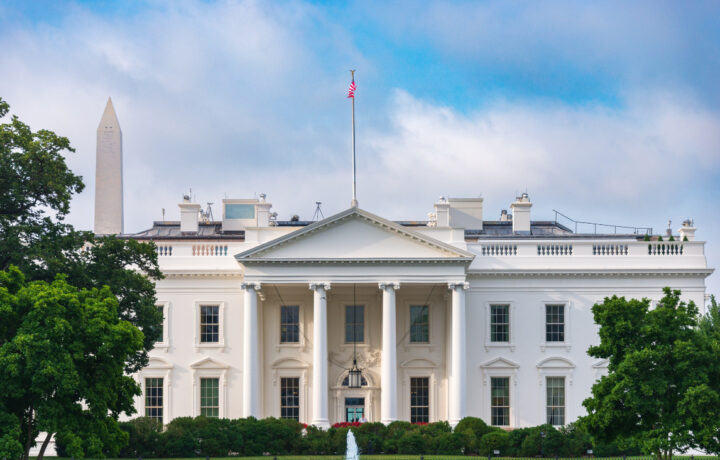An Executive Order (EO) was issued on March 28, ending collective bargaining for agencies and agency subdivisions determined to have an intelligence, counterintelligence, investigative, or national security primary function. This order exempts agencies and agency subdivisions from the provisions of the Federal Service Labor-Management Relations Statute (FSLMRS) and the Foreign Service Labor-Management Relations Statute.
This order has broad implications, considering that many of these organizations have union representation and negotiated bargaining unit contracts in place. It will take time to sort this all out, and numerous legal challenges are sure to follow.
COVERED ORGANIZATIONS
The Executive Order directs that the FSLMRS will no longer apply to the following agencies and agency subdivisions (collectively, the “covered agencies and subdivisions”):
- The Department of Defense
- The Department of State
- The Department of the Treasury, except the Bureau of Engraving and Printing
- The Department of Veterans Affairs (VA)
- The Department of Justice, except specific components of the U.S. Marshals Service
- Certain Subdivisions of the Department of Homeland Security
- Certain Subdivisions of the Department of Health and Human Services
- The Department of Energy, except the Federal Energy Regulatory Commission
- Certain Subdivisions of the Department of the Interior
- Certain Subdivisions of the Department of Agriculture
- The Environmental Protection Agency
- The U.S. Agency for International Development
- The Nuclear Regulatory Commission
- The National Science Foundation
- The International Trade Commission
- The Federal Communications Commission
- The General Services Administration, and
- The Office of the Chief Information Officer (CIO) in each Executive department, as well as the CIO offices for the U.S. Office of Personnel Management (OPM) and the Social Security Administration, and any other agency or subdivision that has information resources management duties as its primary duty.
WHY the collective bargaining change
According to a White House Fact Sheet, “President Trump is taking action to ensure that agencies vital to national security can execute their missions without delay and protect the American people.”
It further states, “the Civil Service Reform Act of 1978 (CSRA) enables hostile Federal unions to obstruct agency management. This is dangerous in agencies with national security responsibilities.”
For example, agencies cannot modify policies outlined in collective bargaining agreements (CBAs) until they expire. The previous administration renegotiated many agencies’ collective bargaining agreements (CBAs) to remain in effect through the current administration’s term. As a result, agencies cannot make most contractually permissible changes until after completing “midterm” union bargaining.
The Fact Sheet proclaims that certain Federal unions declared war on the administration’s agenda. For example, VA’s unions have filed 70 national and local grievances over President Trump’s policies since his inauguration—an average of over one a day.
THE NEXT STEP
The identified agencies and subdivisions are no longer required to collectively bargain with Federal unions after full implementation of this directive. Unions will lose their status as the exclusively recognized labor organization for employees of the agencies and agency subdivisions covered by Exclusions.
Agencies are required to consult with their General Counsels for guidance on implementing this directive. They must consider and implement changes as noted in the OPM directive after canceling Collective Bargaining Agreements for the organizations identified in this EO
What It Means
This Executive Order (EO) will alter work practices for many groups and is designed to enable the President to initiate and expedite his Agency RIF and Reorganization Plans (ARRPs) across the government. Once a Collective Bargaining Agreement (CBA) is terminated, agencies can take the following actions:
- Direct agencies to separate employees who cannot or will not improve their performance
- Limit Performance Improvement Plans (PIPs) to 30 days
- Use the procedures outlined in Chapter 75 of Title 5, United States Code, in addition to Chapter 43, to separate employees for unacceptable performance in appropriate cases
- The VA to reinstate 38 U.S.C. § 714, where Congress granted the VA special authority to remove employees for poor performance without a Performance Improvement Plan (PIP) and with a lower burden of proof than Chapter 43 actions
- Return to in-person work for employees whose CBA is canceled
- Agencies to reassign employees on union time to duties that solely include agency business once a CBA is terminated
- Discontinue Grievance Participation
- Taxpayer-funded union time terminates when agency CBAs are terminated
- End union allotments through agency payroll systems
This is a significant change for Federal employees, who will no longer have union representation. Many union representatives worked on the clock while pursuing their union duties and were allowed to use government facilities, supplies, and travel time to represent the workforce. This ends for the organizations identified in the EO.
This is just one of many Executive Orders designed to implement the reorganization and downsizing of the workforce, with more to come as this progresses into Phase Two of the ARRPs.




